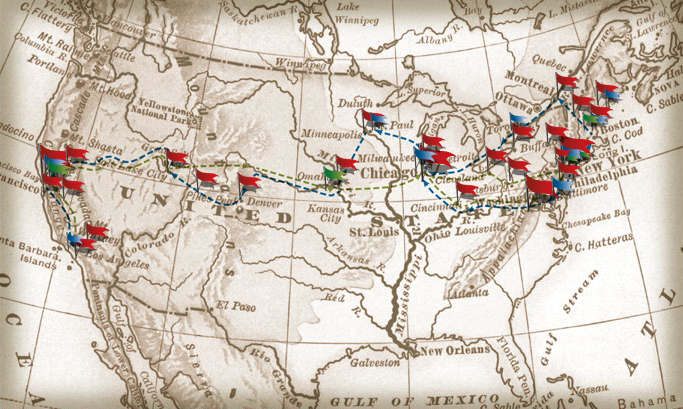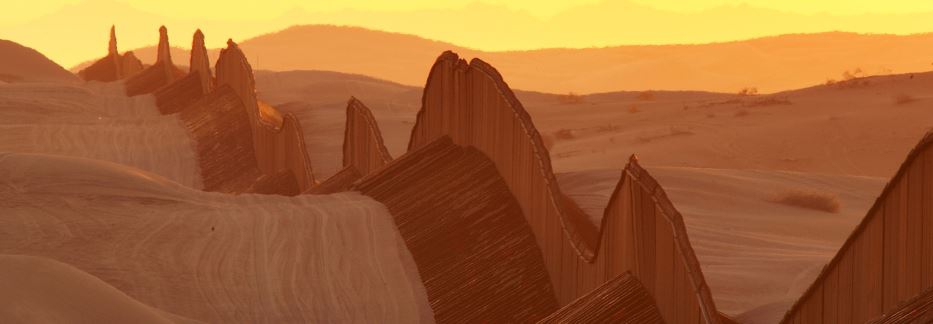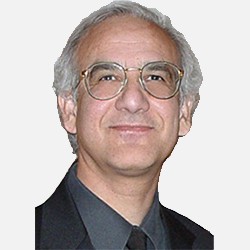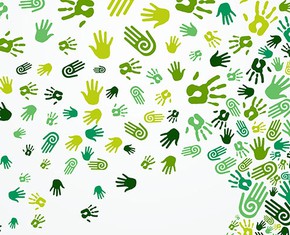The views expressed in our content reflect individual perspectives and do not represent the authoritative views of the Baha'i Faith.

US-Mexico Border
(excerpted from Abdu’l-Baha’s Journey West: The Course of Human Solidarity, Palgrave, 2013, used with permission)
One of the most perplexing contradictions of modern times is the fact that while the twentieth century was a century of increasing belief in principles of human rights, democratic ideals, the equality of human beings, social justice, peaceful resolution of conflict and of the barbarism of war; yet at the same time it was the bloodiest century. Two world wars and various forms of genocide are among the mass brutalities that distinguish the twentieth century as the most savage century of human history.
It is in this context that both the journey and the message of Abdu’l-Baha to Europe and North America during 1911–1913, gain historic significance. He travels from the East to the West to bring a message of nonviolence, communication, social justice, democracy, global orientation, and peace to the West. He systematically addresses the question of modernity and violence and advocates a reconstruction of both modernity and tradition for the emergence of a nonviolent form of rationality and modernity.
One of the main problems of a materialistic and Darwinian reduction of human beings to the level of natural struggle for existence was a Eurocentric ideology that legitimized various forms of colonial violence and violations of human rights by reducing the East to the level of nature while elevating the West to the abode of rationality and culture. Modernity in this sense was a Western phenomenon defined in terms of its opposition and negation of the East. Colonialism was thus the logical consequence of such an approach to modernity.

Abdu’l-Baha’s Travels to the West
Abdu’l-Baha’s journey to the West is itself a fundamental questioning and challenging of Eurocentrism and its narrow definition of modernity, however. Abdu’l-Baha comes from the East in order to bring the message of wisdom, rationality, social justice, equal rights of men and women, collective security, racial equality, and a culture of peace to Europe and North America. Furthermore, the heart of his message was the need for a reconstruction of both the East and the West, tradition and modernity, through the unity of the East and the West and the rise of a new form of rationality and modernity that is based upon the recognition of humans not as mere natural objects but rather as human beings, defined by spiritual characteristics like consciousness, reason, and love.
These tendencies were understood and emphasized in the writings of Abdu’l-Baha’s father, Baha’u’llah, who in the 1860s wrote letters to the major political and religious leaders of the West, emphasizing the emerging global character of the world, and criticizing the barbarism of militarism. He argued that a true recognition of the reality of the world, namely its interdependent and organic unity, called for the replacing of the current wasteful militaristic policies with a search for collective security and social justice:
O ye the elected representatives of the people in every land! Take ye counsel together, and let your concern be only for that which profiteth mankind and bettereth the condition thereof, if ye be of them that scan heedfully. Regard the world as the human body which, though at its creation whole and perfect, hath been afflicted, through various causes, with grave disorders and maladies … O kings of the earth! We see you increasing every year your expenditures, and laying the burden thereof on your subjects. This, verily, is wholly and grossly unjust. Fear the sighs and tears of this Wronged One, and lay not excessive burdens on your peoples. Do not rob them to rear palaces for yourselves; nay rather choose for them that which ye choose for yourselves … By them ye rule, by their means ye subsist, by their aid ye conquer. Yet, how disdainfully ye look upon them! How strange, how very strange! … O rulers of the earth! Be reconciled among yourselves, that ye may need no more armaments save in a measure to safeguard your territories and dominions. Beware lest ye disregard the counsel of the All-Knowing, the Faithful. – The Proclamation of Baha’u’llah, p. 13.
Baha’u’llah also uses an organic metaphor to describe society. In his addresses to the leaders of the world he asks them to regard the world as one human body. However, Baha’u’llah uses the organic metaphor to describe the world of humanity. His statement rejects the romantic notion of nationalism and replaces it with the new idea that all human societies, all cultures, and all nations are in an objective state of interdependence and part of a global common system. Baha’u’llah uses the metaphor employed by advocates of nationalist ideology in order to effectively undermine the entire nationalist illusion.
Continue to: Who Made These Borders? Part 2
















Comments
Sign in or create an account
Continue with Googleor